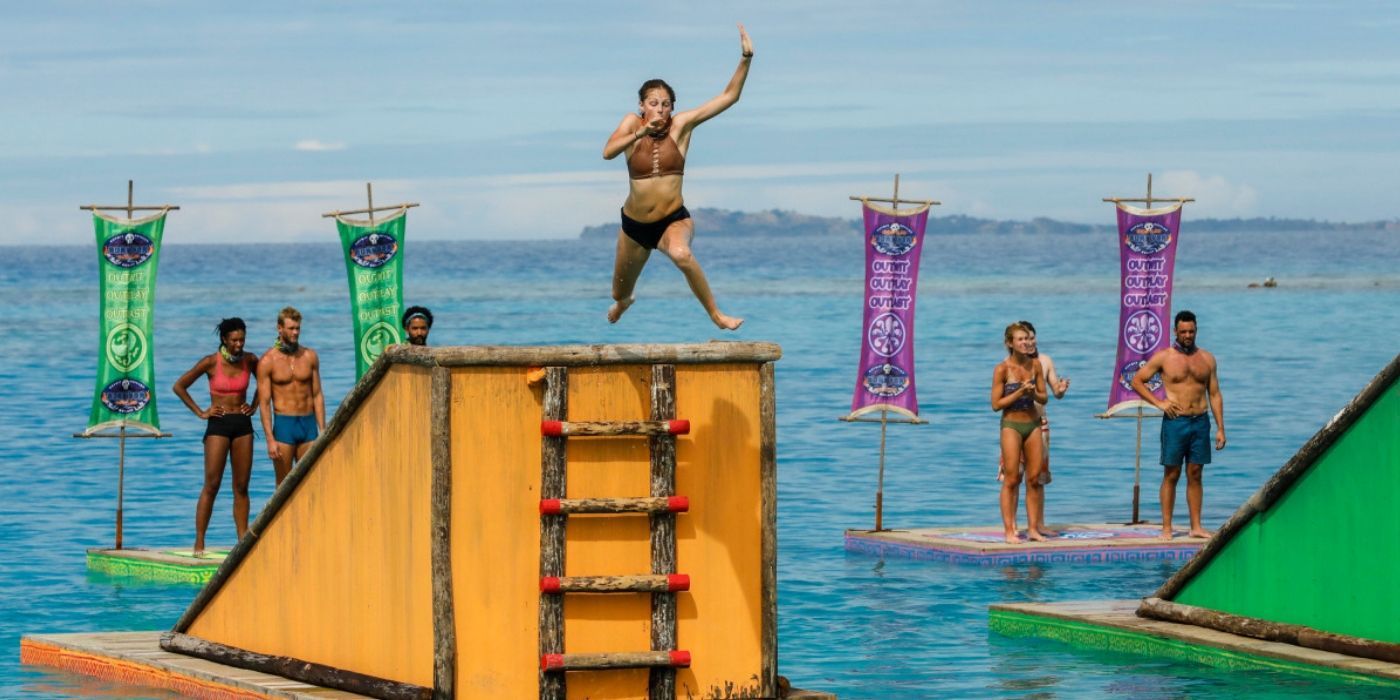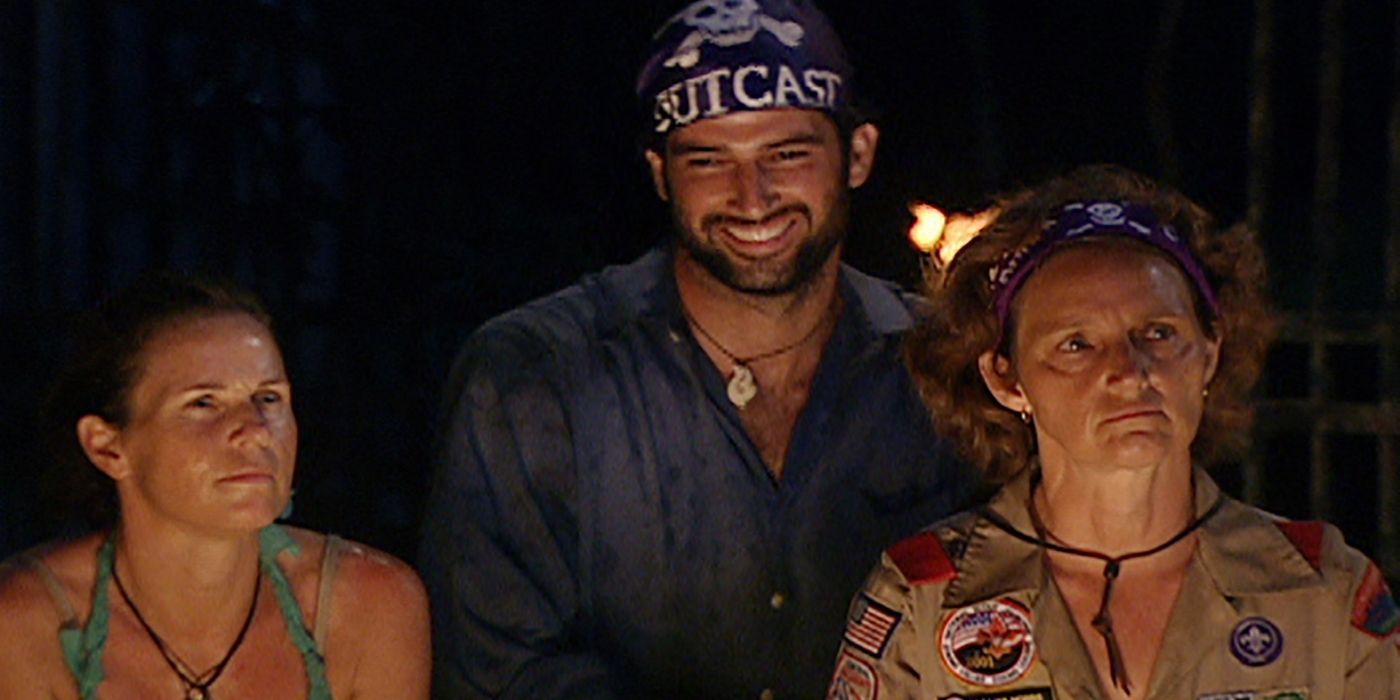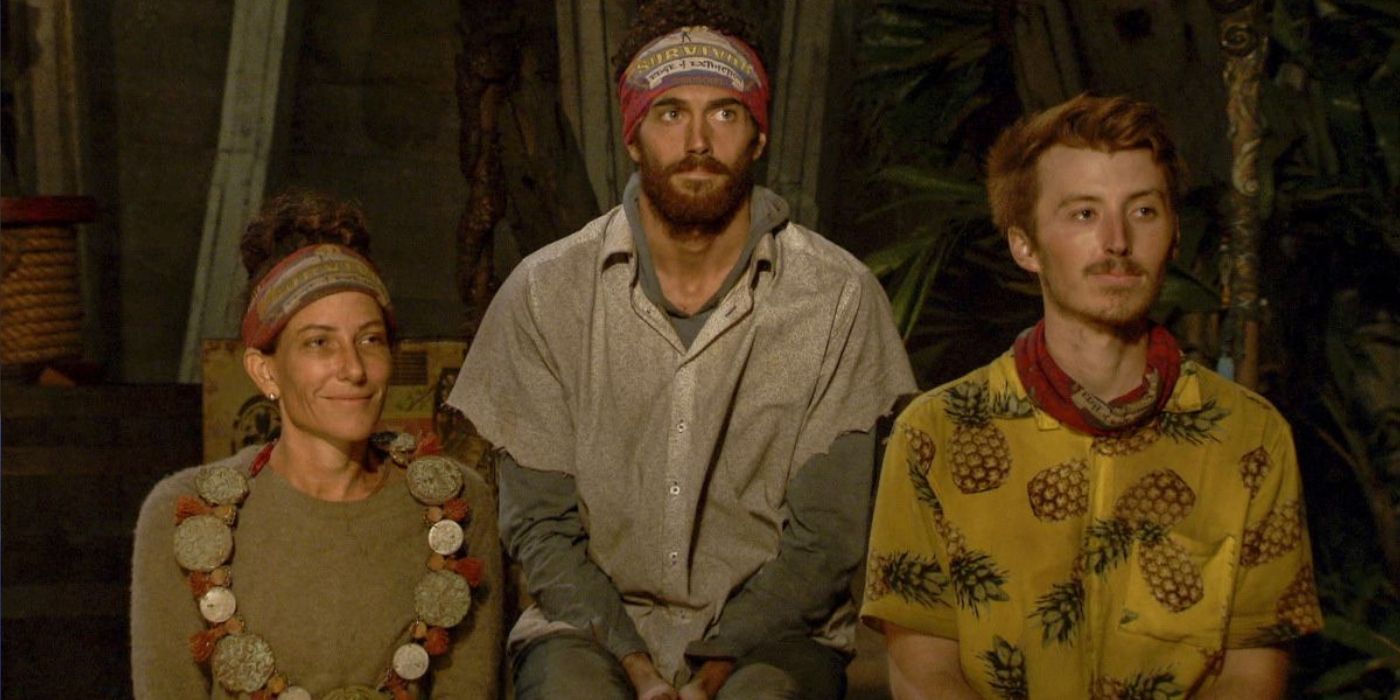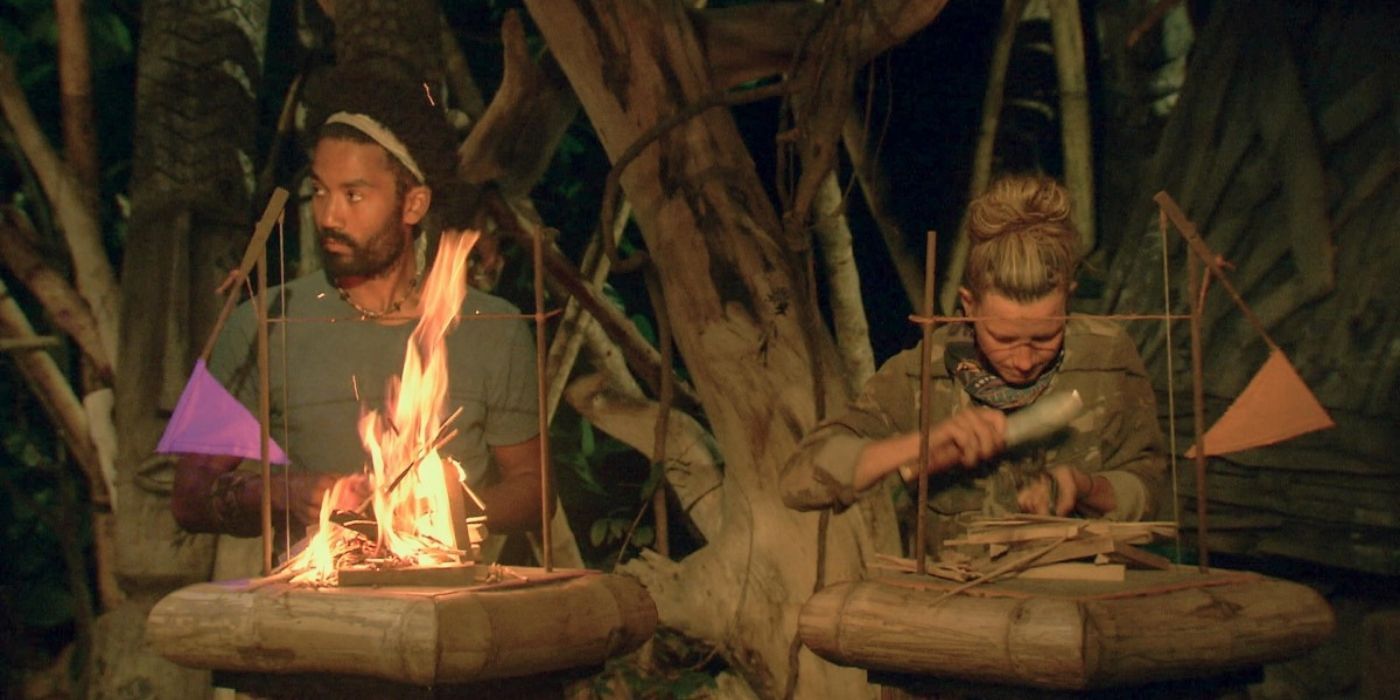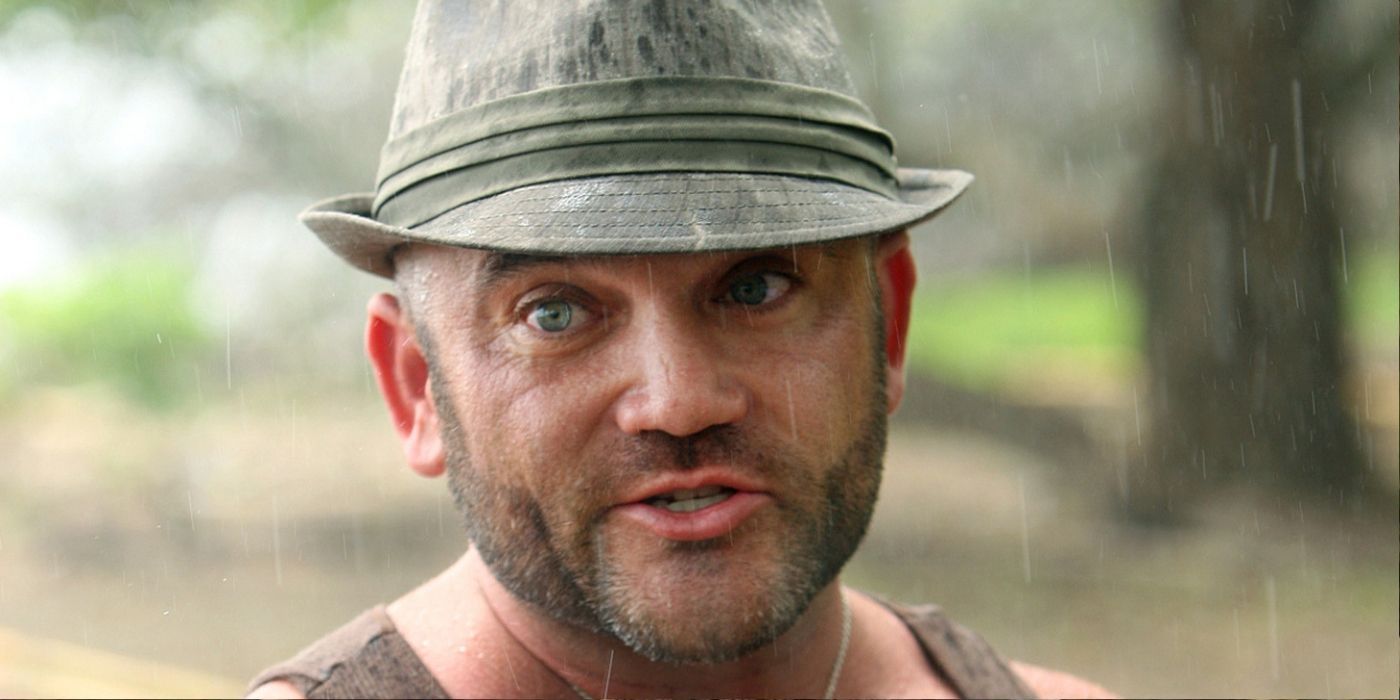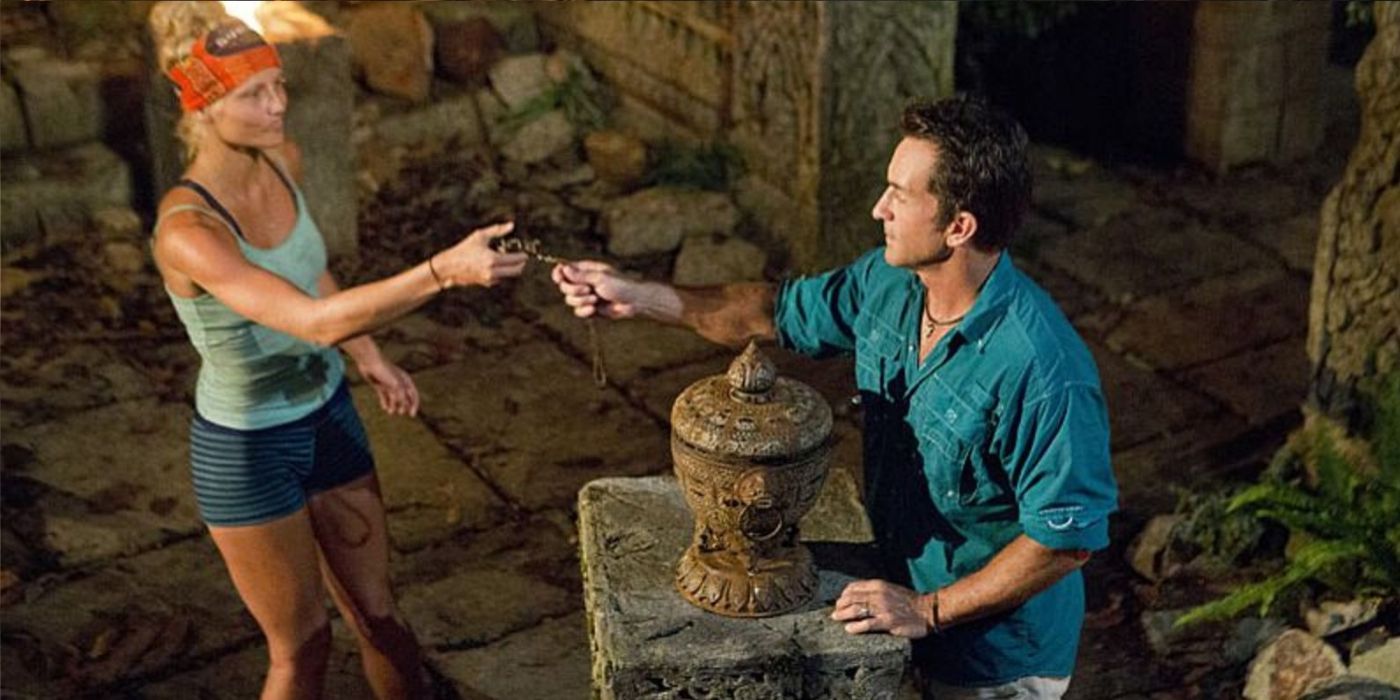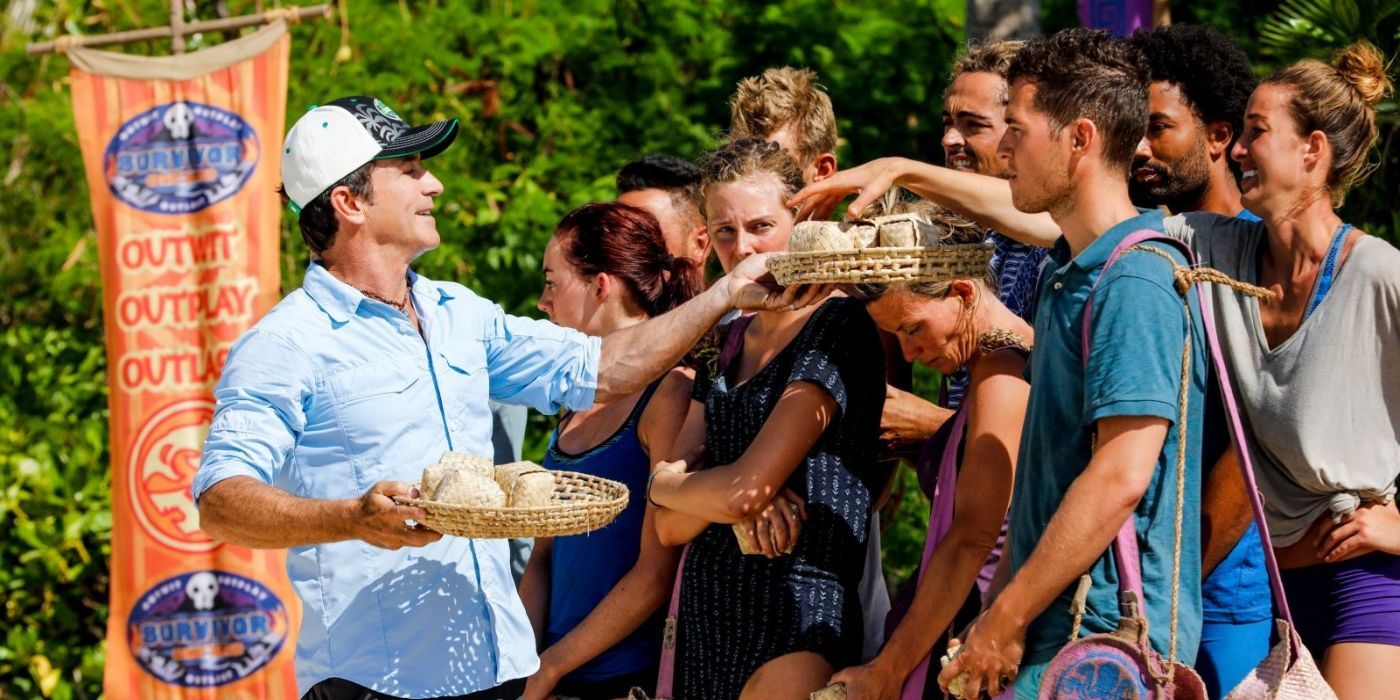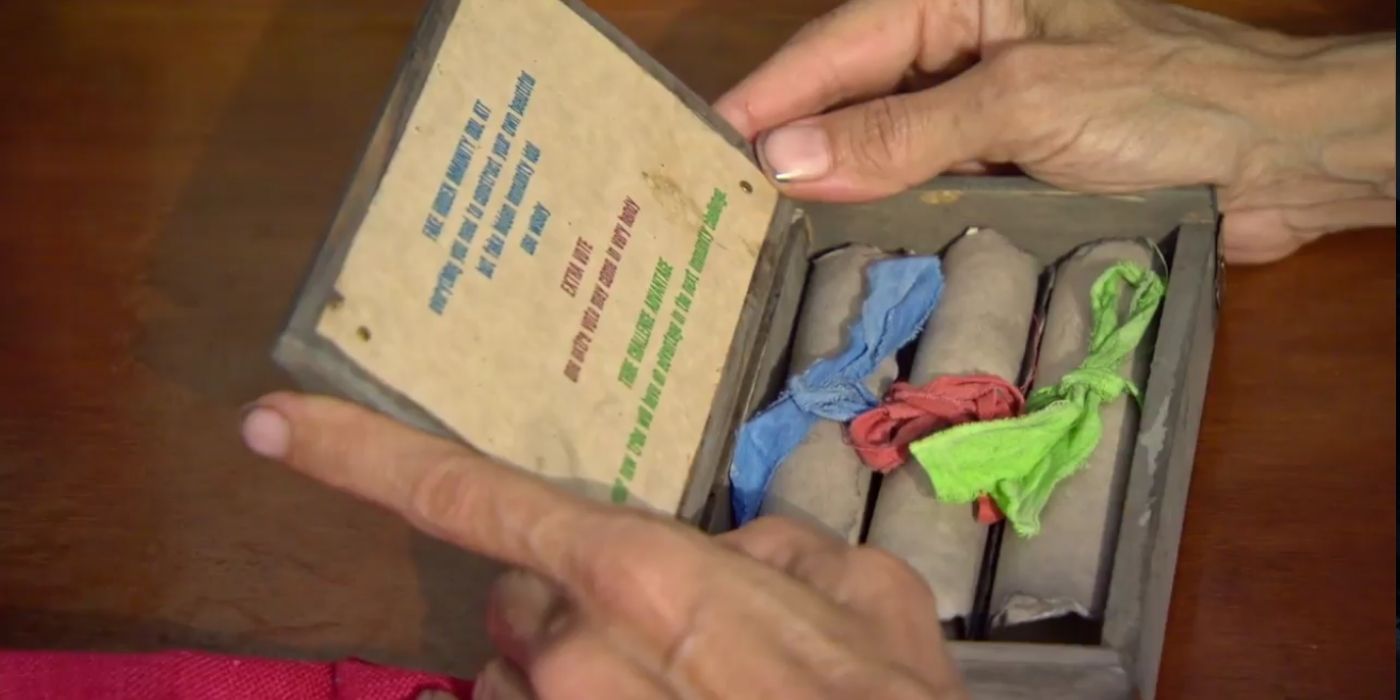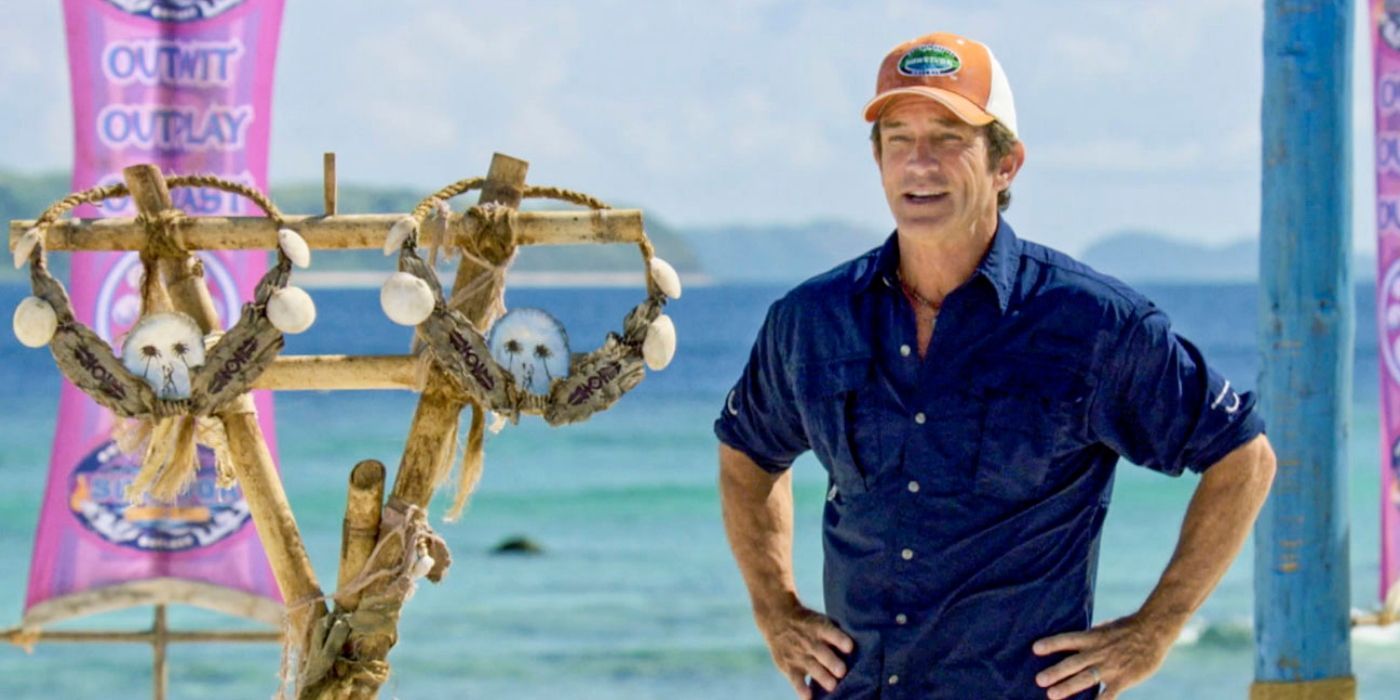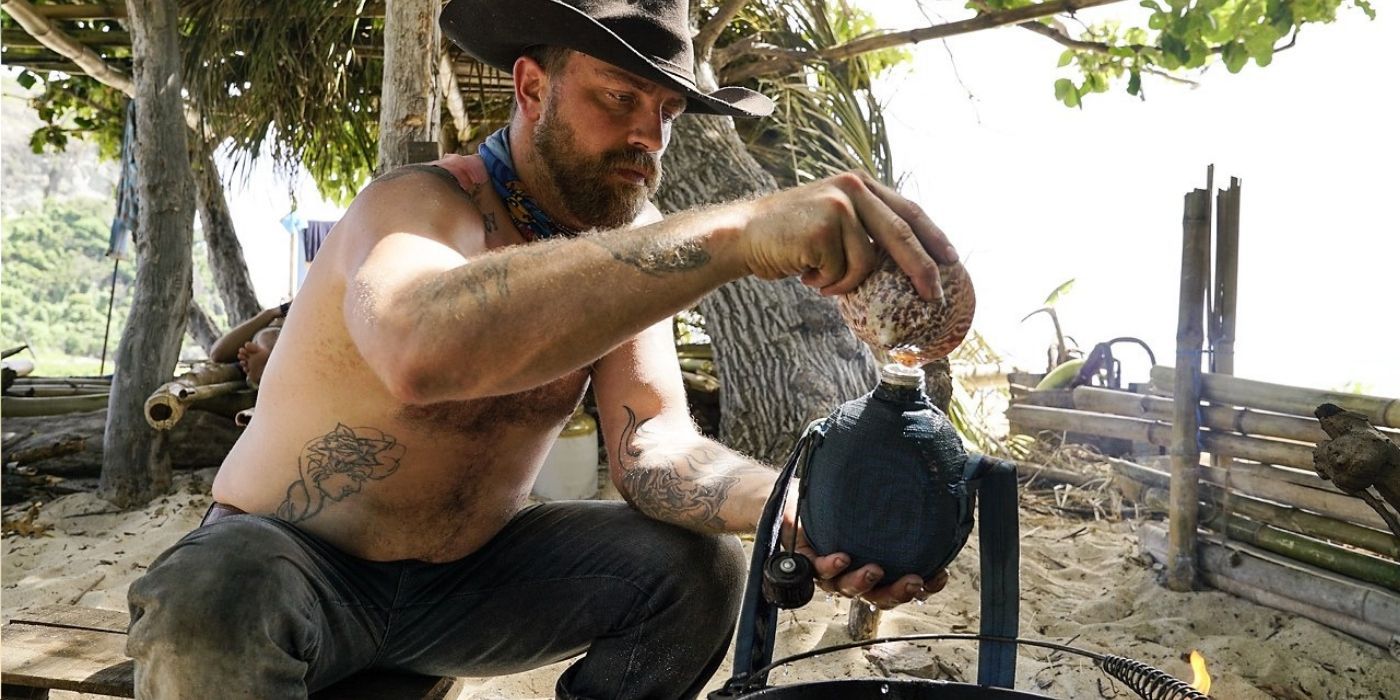Right after the turn of the century, Mark Burnett and Jeff Probst combined to give America it's 'first' reality show contest, and it still kicks on to today. While Survivor is no longer a television juggernaut like it was, it maintains a respectable audience of devoted fans who love watching people get progressively dirtier for 39 days—both physically and strategically.
The contestant's strategies have evolved through the years and the game has attempted to stay ahead of them at every turn, resulting in several changes throughout the show's lifespan. Some of these changes were to the central contest, but others are to the television presentation, while still others were to the format and advantages in play. It still resembles the contest as it was originally presented, but there's a deep history of tweaks and twists that fans have adored and abhorred in their wake.
Worst - The Outcast Tribe
One of the problems with a show like this is that great 'characters' often get voted out early. The Outcast Tribe of Survivor: Pearl Islands was the show's first major attempt to rectify this.
Unknown to the remaining players, the ones they'd voted out continued separately and ultimately were able to vote some of their numbers back into the game. Due to the unspecified circumstances of the Outcasts conditions, the remaining players not knowing this was coming, and the added advantage of being immune for an additional Tribal Council, this was seen as massively unfair.
Opinion has softened over time, but essentially teleporting players who 'lost' into the middle of a game where constant tension has been applied to everyone else is questionable at best.
Best: Edge Of Extinction
Redemption Island 4.0 seems to have finally gotten the 'save cool players from elimination' twist right. Making a Survivor's final elimination a matter of willpower rather than a carnival game of chance gave this twist the spice it needed.
Eliminated survivors were marooned on an island separate from the game with little to no aid or contact. If they couldn't hack it, they literally raised the white flag/sail and were gone. Their only action available was to await chances to re-enter the game against each other. Once in the middle of the game, and once near the end. It produced both a powerhouse player and the eventual winner, lending credibility without seeming to favor them directly.
Worst - The Final Four Fire
Plenty of fans cried conspiracy when this alternate elimination came into play. Season 35's Ben Driebergen had gotten himself into a difficult corner. He looked destined to be voted out by the others who knew he'd win if he made it to the end. That knowledge is essentially a death sentence in Survivor and had been for dozens of seasons by that point.
Then, suddenly they couldn't vote him out when the opportunity arose. This was because he and another would be going head-to-head in a fire-making challenge instead. Whether it was brought in to keep an audience favorite from going home with a whimper or was always planned so the finale had someone who 'earned/fought' their way in, fans debate its legitimacy.
Best: A Million Little Idols
A way for players to save themselves from a vote, but only if they intuit the right moment to do so? Hell yeah! This is the perfect blend of strategy, gut-instinct, bluffing and boasting that makes Survivor great.
Idols have been so well received by contestants and fans that it has appeared in every season since it's inception in Guatemala. They've been hidden requiring precise steps to find like a treasure, scattered around the camp, snuck into challenges, and put everywhere the show can think of to heighten the drama. They're renowned for a good reason and won't be going anywhere.
Worst: Except For Those Other Idols
The idols that could be played after all votes were read were too overpowered and made a person nigh-invincible for the remainder of the game. The initial Idol worked more like you'd won an immunity challenge and kept people from voting for you at all. In both cases, it required too much coordination from the remaining players to overcome. Thus, holding onto those idols had players walking through the game threatening to play them at every turn.
This stunted the dynamic social game Survivor is meant to be. They've thankfully been rarities since the 'vote negating' Idol became the norm.
Best: Tribe Swap/3 Tribe Splits
In earlier seasons, it wasn't uncommon for one tribe to dominate proceedings. This lead to them heading into the merge with 'the numbers.' The show cleverly caused some wrinkles to that safe (aka boring) situation by mixing things up. Some seasons have begun with (or temporarily split tribes into) 3 groups instead of 2. This strategically allows smaller teams to band together to overthrow dominant factions.
The Tribe Swap variant is now in every season and also improves the overall game. It ensures no one can simply ride early success without the possibility of having their allies removed from them or them from their allies. Both elements also increase the likelihood of lesser contestants finding their feet in the game and their voice for the show.
Worst: Unbalanced Or Pointless
Survivor has been tempted at various times to experiment. Sometimes, that is in ways where the outcome proves the experiment wasn't worth it in the first place.
For instance, in Fiji, tribes were split between the 'Haves and Have-nots' where one group lived in relative luxury to the other. Surprise surprise, the tribe with the advantage dominated early.
In Nicaragua, the Medallion Of Power flumped into the game. Tribes could 'play' the medallion to gain challenge advantages. It became an almost instant afterthought and was retired relatively quickly, never to be seen again. Essentially, anything that makes one appearance and never returns in subsequent seasons falls into this category.
Best: High-Risk vs. High Reward Advantages
It could be argued that there are too many 'shenanigans' on Survivor. These are balanced just right to be worth it. There have been several types that work in this way. Advantages that require dropping out of an Immunity Challenge to receive. Advantages where other players will know you have it, but not know it's specific details. Clues that tell you of an Idol hidden in plain sight that you will need to be bold to go after.
These types create great tension within the show without unfairly tipping the balance. Survivor often experiments with variations on this core concept, hoping to catch players unaware without completely upending their game-knowledge.
Worst: Schoolyard Pick Double Elimination
Sometimes, Survivor instantly realizes when they've hatched a dud, and this was it. At the very beginning of Survivor: Palau, two contestants, one guy and one girl, were forced to pick from the currently unsorted mass of players. From this, they'd form the two tribes, swapping genders at each pick. Ok, so far. Then, the final man and woman unpicked were unceremoniously sent home. That was it. Wanda and Johnathan were simply gone, and any investment in them was snuffed.
It was unfair, unfitting of the game, and left a bad feeling in fans and contestants alike. The only small solace to this misstep is that in future seasons when Jeff has instituted situations where some players may be left out, there is legitimate tension. Nevertheless, they've rightly never revisited this.
Worst/Best? (Depends On Who You Ask): 'Edgic'
'Edgic' is a term hardcore Survivor fans came up with where they get into the depths of discussing how the show and contestants are presented. Portmanteau-ing 'editing' and 'logic' together, the theory is that examination of someone's weight of television time and type can 'predict' each season's likely outcomes. Whether they're shown in favorable, foolish, or an antagonistic light, you can 'know' their destiny well in advance.
Early seasons didn't skew as far in tipping their hands. Seasons like Survivor Samoa, Cagayan, and Redemption Island had a single player dominate the game and show entirely. Latter seasons have seemingly taken this fan phenomenon into account and attempted to lessen the obviousness. This has resulted in more well-rounded contestant showings and better critical reception, more like the original layout but sharper. Either way, it's an element of meta-analysis that undermines the show for some, yet totally makes it for others.

